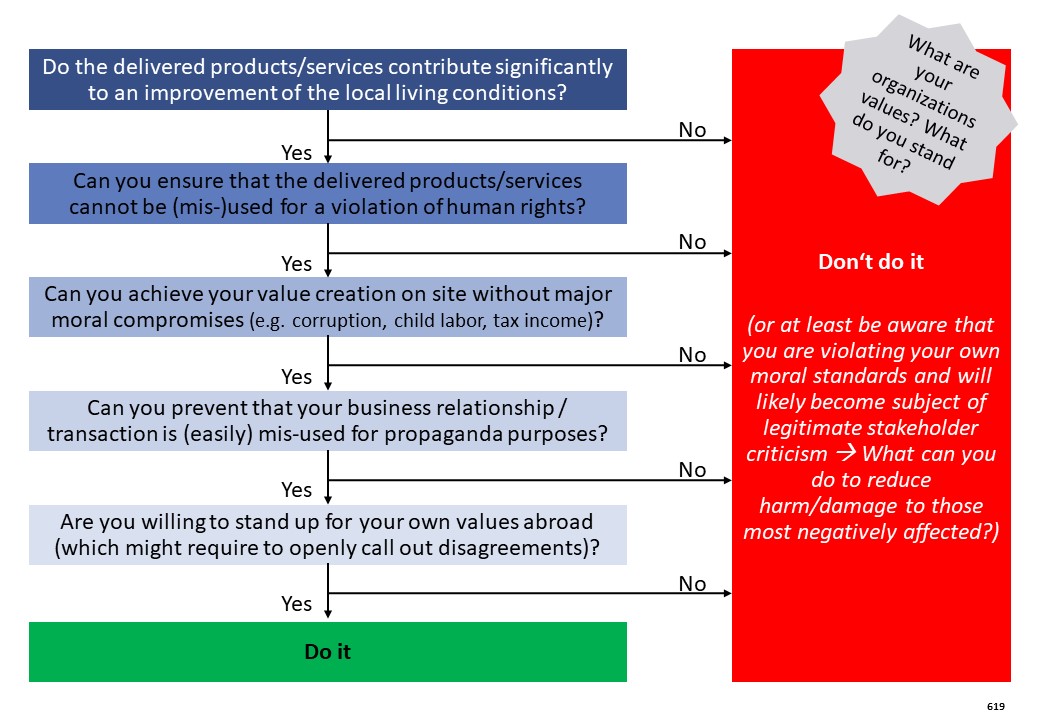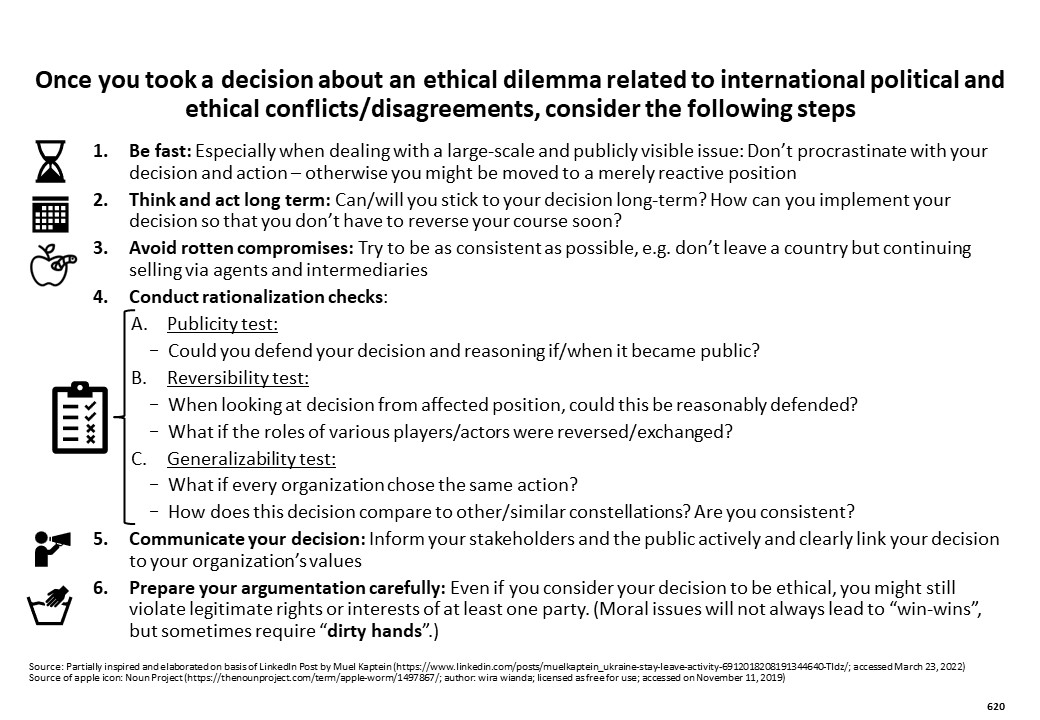The former CEO of the German conglomerate Arcandor, Thomas Middelhoff, was recently sentenced to three years in prison for mis-using company resources for private purpose. Despite the fact that Middelhoff can (and in fact did) appeal against this ruling, he was arrested immediately in the court room last Friday (November 14, 2014). The judge feared Middelhoff might otherwise avoid his detention (because of the high sentence as well as because Middelhoff’s permanent place of residence is outside of Germany and because he doesn’t currently seem to have a stable job). This arrest gained a lot of attention in the German media as Thomas Middelhoff certainly was a particularly prominent and rather controversial business leader even before this latest in an entire series of falls.
It is tempting to point to the parallel of Thomas Middelhoff and Jeffrey Skilling, the ex-CEO of Enron: Both of them were particularly shiny CEOs, covered in numerous articles and praised as examples of successful leadership – and both left their CEO-positions voluntarily and unexpectedly just a few months before the insolvency of their organizations. Both cases are classical examples for the study of corporate vanity and arrogance – and both end in jail. But next to this coincidental resemblance, the case allows to quickly reflect about at least five interesting business ethics aspects:
1) Increasing attention towards (and sentences against) white-collar crime
In the more recent past there have been quite a few legal cases against business leaders, e.g. because of tax fraud, corruption or (as here) because of misuse of company resources. I wouldn’t necessarily describe this as a new trend, but it seems to be at least somewhat different from the past, that nowadays these cases quite often affect previously well-respected business people. I don’t know of an equally high number of similar cases from the 1960s or up to the 1990s. As a consequence managers today and tomorrow will definitively need to be prepared to eventually face legal consequences for immoral behavior in their leadership role – or to just stop doing it, because the old assumption that nothing bad will happen to themselves is no longer valid.
2) Mixing private life and business
Thomas Middlehoff was convicted for the misuse of company resources. Two of the most prominent accusations (he was convicted for 27 out of 44 accusations that were brought up by the prosecutor):
(a) He used a private jet at the company’s expense (cost of 91,000 EUR) to travel to New York in order to attend a board meeting of the New York Times, where he served as non-executive board member as a side-job.
(b) He mandated a celebration publication for this mentor Mark Wössner, the ex-boss of Bertelsmann, Middelhoff’s previous company (cost of 180,000 EUR).
The prosecutor claimed that both of these expenses (plus several others such as use of helicopters to fly from his private home to work, despite the fact that he had a personal driver and an apartment close to his office) were not related to his job as CEO of Arcandor, but rather private in nature. And this is not only important for executives, but for almost all of us: business and private lives have been getting less clearly separated in the last few decades; not only for Thomas Middelhoff. But as both dimensions are getting more and more interwoven, it will be getting increasingly important, that we draw a sharp line with respect to usage of resources, expense reports, company assets etc.. Even if we work from home, this doesn’t mean that we are allowed to take company property home. And this is particularly true for people who are active for multiple companies, employers, clients etc. at the same time. It is important to diligently separate between these different actors.
3) The Al Capone tactics of public prosecutors
No, Thomas Middelhoff is certainly not Al Capone. But there is a bit of a resemblance in the tactics of the public prosecutors: As commonly known, Al Capone was finally arrested and convicted on basis of rather insignificant crimes/violations (such as contempt of court, vagrancy or tax fraud), all of which are close to irrelevant when compared e.g. to the assumed order of the Saint Valentine’s Day Massacre. Middelhoff certainly never ordered a shooting or anything even close to that – this is not the point. But what can somehow be compared is the fact that from a moral perspective the charges that brought Middelhoff to jail (a total of 500,000 EUR of misused company property) are rather insignificant when compared to the fall of Arcandor, one of Germany’s previously largest companies. The shareholders, the customers and the more than 85,000 employees (status 2008) certainly had to (and are) suffering more since the insolvency than a total value of 500,000 EUR. Not all of this can or should be attributed to Middelhoff personally, but it seems to be widely accepted that at least one of his managerial decisions contributed significantly to the fall of Arcandor: In order to raise capital for investments, the management board of Arcandor agreed to a massive sell-and-lease-back deal for the real estate of their department store business. The monthly rent proofed to be a poisonous pill, but it is not only the decision in itself that is dubious: Thomas Middelhoff himself and personally invested in a fund that bought from and then rented the department stores to Arcandor – and this is certainly a drastic case of conflict of interest, and from my perspective (a) economically more damaging and (b) morally even worse than the flights to New York. The rather harsh sentence of 3 years in jail can well be considered to also include some sort of moral condemnation for other behaviors than just the 27 accepted accusations.
4) (Executive) compensation and misappropriation of company resources
In the German public there have been repeated discussions around several cases of low-level employees who were fired/convicted for theft of company resources – many of which were cases with insignificant monetary value. Cases included stories of people taking home a loaf of bread from a bakery that was left over after closing the store and similar situations. In many cases employers and courts reacted rather harshly and insisted that theft was violating the necessary trust in the relation of the individual and the organization. But up until this case of Thomas Middelhoff there have been significantly fewer cases about misuse/misappropriation/theft of company assets by a board member.
In the past, I did observe (and am currently designing a short study to analyze this aspect) a tendency to be – at least in Western, free-market societies – harsher with respect to the moral evaluation of theft/misappropriation by lower level employees compared to more senior people in the organization, even despite the fact that the latter earn much more and can therefore not claim to have acted out of a financial need. The case however should make us consider to what extend we evaluate the same underlying behavior differently dependent upon the status, hierarchical position and salary of the actors.
And as CEO of Arcando Middelhoff did not only earn significantly more than others, his total compensation also showed a spectacular increase: From 955,000 EUR in 2005 (for 7 months) to 3,863,000 EUR in 2007/2008 (full year) – despite a horrific loss of 562,000,000 EUR (EBT) in this year. It is possible to imagine that someone who earned so much money, somehow lost the touch and understanding of what 91,000 EUR for a trip to New York mean. A person like Middelhoff might possibly have imagined that it didn’t really make a difference if he directly used company resources or just would have asked for a salary increase equivalent to this sum.
5) Moral luck
And finally the case nicely reminds us about the importance of such seemingly irrelevant aspects as luck in moral issues. In his sentence the judge correctly pointed out that there wouldn’t have been anyone to accuse Thomas Middelhoff if the company hadn’t gone into bankruptcy shortly after his resignation as CEO. It was the liquidator of the remaining assets after the insolvency who started to investigate into Thomas Middelhoff’s use of company property. In total the judge accepted claims that totaled 500,000 EUR, which Middelhoff misused for non-company related purposes. Compare this to his annual compensation of more than a million EUR at Arcandor (in addition to e.g. a rather generous golden handshake only a few months before the end of the company), it is indeed more than likely that nobody would have taken the effort to compile the fussy details of the evidence that finally led to this incarceration. This should be a call to humility for all of us: How often did we behave in a wrong way/immoral? If you are anything like me, you will easily come up with several case examples that only due to luck remain unknown to the public – and we can be happy to have this luck.


